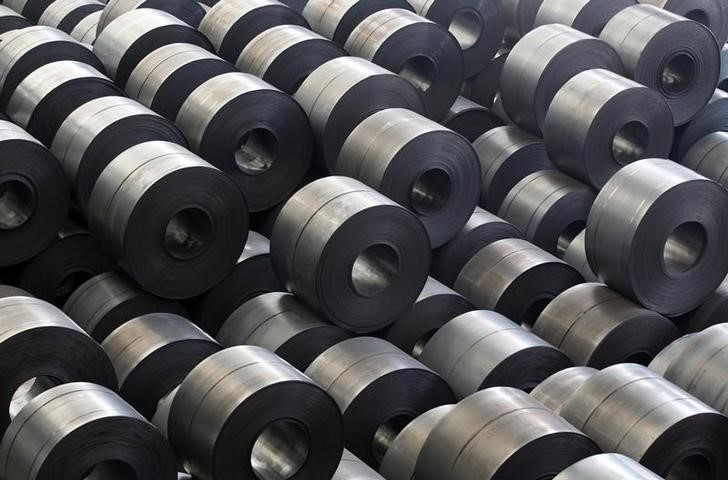By David Lawder
WASHINGTON/SEOUL (Reuters) - The United States and South Korea agreed to revise their six-year-old trade pact with a side deal to deter competitive currency devaluation by Seoul and with concessions for U.S. autos and pharmaceutical companies, Trump administration officials said on Tuesday.
They told reporters that the deal includes provisions outlined by South Korean officials on Monday, including a 20-year extension of the 25-percent U.S. tariff on pickup trucks and a doubling of the Korean import cap on autos that meet U.S.-specifications to 50,000 per manufacturer per year.
The agreement, cobbled together quickly with only a few rounds of negotiations under Trump's threat of withdrawal, will include a side-letter that requires South Korea to provide increased transparency of its foreign exchange interventions, with commitments to avoid won devaluations for competitive purposes.
The currency deal, final details of which are still being negotiated between the U.S. Treasury and South Korea's Ministry of Strategy and Finance, is considered a "side letter" that will not be enforceable with trade sanctions.
Many U.S. lawmakers, particularly Democrats, had opposed the 2015 Trans-Pacific Partnership trade deal because it had a similar currency manipulation side-agreement that could not be enforced.
Nonetheless, the revised U.S.-South Korean Free Trade Agreement, known as KORUS, would be the first U.S. trade deal in force with a currency side-deal, and would not need congressional approval, the officials said.
Asked whether the forex agreement would ensure that South Korea is not declared a manipulator in the U.S. Treasury's next currency report due on April 15, the officials declined to comment, saying such assessments would be made in accordance with Treasury's normal procedures.
Improving foreign exchange policy transparency would mean disclosing the amount of money spent to curb currency market volatility, an official at South Korea's finance ministry said.
"It's about time" South Korea discloses FX intervention details, an official said, asking not to be named due to sensitivity of the issue.
South Korea's central bank is often suspected of buying or selling dollars to stem sharp fluctuations in the won against the U.S. currency, but there are no official figures on how much money is spent on the so-called "smoothing operations."
While South Korea says its currency market intervention is restricted to smoothing operations both ways, the practice has exposed the country to criticism that it may be devaluing its currency to sharpen exporters' competitiveness.
Earlier in March, South Korean government officials said plans to disclose details of currency market intervention are "under review."
South Korea has been kept on a Treasury currency "monitoring list" due to its large global current account surplus and U.S. trade surplus. The Treasury's October report urged Korea to "to enhance the transparency of its exchange rate intervention."
STEEL QUOTAS, TARIFFS
The officials confirmed that South Korea agreed to cut its steel exports to the United States by about 30 percent in exchange for the rest being excluded from steel tariffs. Korean aluminum producers would still be subject to U.S. President Donald Trump's 10 percent tariff on aluminum.
Other countries also must agree to similar quotas to escape tariffs, but the size of the limits would vary. The United States is negotiating with Canada, Mexico, Brazil, the European Union, Australia and Argentina.
One official said it was "not a one-size fits all kind of thing" and added that the South Korean quota was agreed due to its "unique" position in steel exports. South Korea imports and processes significant amounts of Chinese-made steel, much of which is under anti-dumping and anti-subsidy tariffs.
"What will be the same for any country that is out from under the 232 tariff, like with Korea, there will be a hard quota," the official added.
South Korea also agreed to amend a government health program that pays premium prices to domestic drug companies in order to ensure a level playing field for U.S. pharmaceuticals producers, the U.S. officials said.
In addition to the increased access for American vehicles that meet U.S. but not necessarily South Korean safety standards, the U.S. officials also said they won reductions in non-tariff barriers to U.S. vehicle sales, including elimination of duplicate environmental testing requirements and recognition of U.S. replacement parts standards.
Extension of the phase-out period for U.S. pickup truck tariffs to 2041 would ensure that U.S. pickup truck production would not migrate to South Korea as some production moved to Mexico after the North American Free Trade Agreement eliminated the tariff, the officials said.
